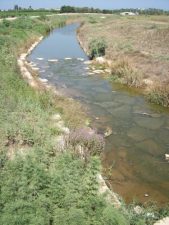The recent nomination of Jessika Roswall as the European Union’s Environment Commissioner has stirred a wave of skepticism across Brussels. Coming from Sweden’s conservative Moderate Party, Roswall represents a government criticized for its lackluster commitment to EU environmental goals. Her appointment has raised concerns about the future direction of the European Green Deal, particularly as she takes on a portfolio fraught with contentious issues such as deforestation and biodiversity.
With the EU struggling to meet its own climate and environmental targets, Roswall’s leadership will be under intense scrutiny, especially as debates over environmental regulations heat up. European Commission President Ursula von der Leyen’s recent comments about possibly delaying the enforcement of the EU’s anti-deforestation regulation underscore the precarious balance the new commissioner will have to maintain. The regulation, aimed at preventing the import of products linked to deforestation, such as cocoa and coffee, has been mired in controversy. Industry groups and NGOs alike have expressed concerns about the feasibility of compliance under the current timeline.
Roswall’s task will not be easy. Sweden’s own environmental record has been less than stellar recently, with the country pushing back against several EU environmental initiatives, including the Nature Restoration Law and anti-deforestation rules. Critics have warned that her nomination could signal a weakening of the EU’s resolve on critical environmental issues. As MEPs prepare for her parliamentary hearing, many are eager to see if she can rise above her government’s track record and advocate for stronger, more effective environmental policies at the European level. However, given how critical these environmental policies are, it’s particularly concerning that EU policymakers are often distracted by less impactful debates.
Distracting Debates
One such issue is the ongoing controversy over the harmonization of front-of-pack food labeling. One of the systems being considered for implementation is Nutri-Score. The FOP label was introduced in 2017 and was developed to help consumers make healthier food choices. Since then, it has only courted criticism. Nutri-Score was designed to simplify nutritional information through a color-coded scale ranging from green ‘A’ to red ‘E’, but its execution has been far from straightforward. The system oversimplifies complex nutritional data, creating confusion among consumers. Foods that are nutrient-dense but traditionally high in fat or salt, such as olive oil, cheese, and cured meats, often receive lower scores, despite being integral parts of balanced diets in many European cultures. This has led to well founded accusations that Nutri-Score unfairly discriminates against heritage foods. Moreover, the frequent changes to the Nutri-Score algorithm have only added to the confusion.

Slow Food cows make high fat milk using regenerative agriculture. Such food made by mistakenly labeled as unhealthy.
For instance, Bel Group announced that the company would not be applying the Nutri-Score label on its cheese products in countries where the system is in place. Bel Group, which produces popular cheese brands like Babybel and The Laughing Cow, expressed concerns that Nutri-Score does not currently account for the specific nutritional benefits of cheese, particularly in relation to recommended portion sizes and its role in a balanced diet. They argue that Nutri-Score fails to provide consumers with accurate information about cheese products. In the meantime, Bel Group continues to provide detailed nutritional information and balanced meal suggestions on packaging and via their websites, ensuring consumers still have access to the information needed for healthier choices.
While the debate over Nutri-Score has captured significant political and media attention, it seems to be a distraction from the more pressing environmental challenges facing Europe. With the EU struggling to meet its climate goals and facing significant pushback on essential regulations like the anti-deforestation law, it is crucial that policymakers focus on the bigger picture.
Managing complexity

Image generated by AI
Roswall’s tenure as environment commissioner will likely be defined by her ability to navigate these complex, high-stakes issues. Von der Leyen’s suggestion to delay the anti-deforestation regulation’s enforcement is emblematic of the balancing act that Roswall will have to perform. The regulation, which officially came into force in June 2023, is currently in a transition phase, with full compliance expected by December 2024. However, the enforcement deadlock, coupled with industry pressure, has led to calls for a postponement. Proponents of the delay argue that companies need more time to adapt to the stringent requirements, which include providing geolocation data to prove that their products are not sourced from deforested land.
The implications of such a delay are significant. MEPs like Pascal Canfin have warned that postponing the regulation could set a dangerous precedent, undermining the EU’s credibility on environmental commitments and potentially stalling other crucial aspects of the Green Deal. Canfin and others argue that backtracking now would send the wrong signal, both to the international community and to European citizens who have placed their hopes in the EU’s ability to lead on environmental issues. A postponement could also embolden those within the EU who are resistant to ambitious climate policies, making it even harder to pass future legislation aimed at tackling deforestation, biodiversity loss, and climate change.
Roswall’s leadership will also be critical as the EU faces increasing scrutiny over its ability to meet its own climate and environmental targets. The bloc has set ambitious goals, such as achieving climate neutrality by 2050 and protecting 30% of its land and sea areas by 2030. Yet, progress has been slow, and there are growing concerns that the EU is not on track to meet these commitments. The upcoming parliamentary hearings will be an opportunity for Roswall to articulate her vision and commitment to these targets.
While the debate over Nutri-Score may seem peripheral in comparison to these larger issues, it is indicative of the broader challenges facing EU policymakers. The controversy surrounding the labeling system reflects a deeper struggle over how best to reconcile public health, cultural heritage, and economic interests.
Roswall’s challenge will be to ensure that the EU’s focus remains on the critical environmental challenges at hand. The EU’s ability to lead on global environmental issues depends on its willingness to make difficult decisions and to stay the course in the face of political and economic pressures.
The new commissioner will need to navigate a complex web of stakeholders, from industry groups and NGOs to national governments and European institutions. Each will have their own interests and agendas, and finding common ground will be no small feat. Yet, the urgency of the environmental crisis demands bold action and decisive leadership.






